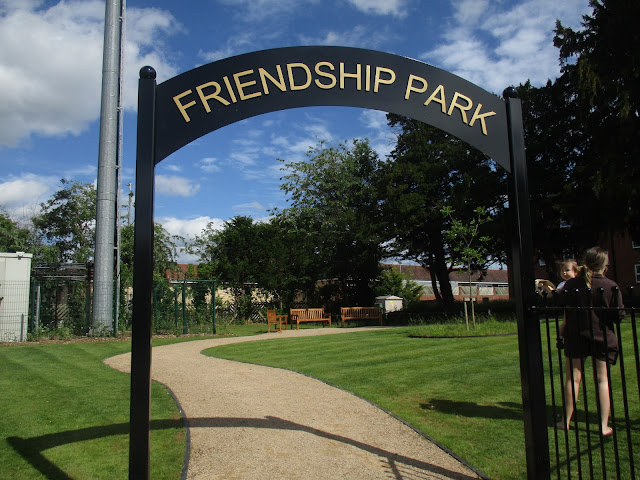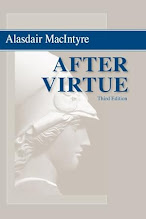Fresh from a canal holiday made difficult by unannounced closures, Peter Chambers looks at the many challenges facing the Canal & River Trust.
The British have been using waterways for a long time: we are
told that the canal called the Fossdyke was created by the Romans.
Things
started to get busier as entrepreneurs such as the Duke of Bridgewater and
Josiah Wedgewood raised capital for specific ventures that would pay for
something that by-passed the toll roads of the day – iron mining and pottery in
their cases.
This was the start of the first Industrial Revolution in the
1700s. Once these connections existed, the marginal cost for other uses dropped
and more firms used them. The logic of places such as Birmingham became
evident, as you were taught in O level Geography. The more you link, the more profitable
it is to link more.
At the time. each new major canal required an Act of
Parliament. Limited liability companies solicited funds, and shopped around for
an MP to propose another Canal Bill. The canal age had started. The emergent
network was a strange one. Different fees, widths, depths, keys, windlasses,
heights and naming conventions. It topped out at about 8000 miles. Today we
have the best 2000 in preservation.
The canals survived into the 20th century. They played a part in winning the two world wars, helped by a big public works
programme run by Herbert Morrison in the 1930s.
Then reality caught up. The combination of the post-war car
economy and the railways removed most of the profitable trade. The network was
taken into public ownership under the British Transport Board. The canal
network was put under the British Waterways Board (BWB). Even today there are
artefacts stamped BWB.
The Department of Transport debated the future of the waterways with its
boards. However, despite attempts at running high-latency cargo, leisure was the
only viable long term use identified. The BWB settled in for a long stretch
running a national ‘linear leisure park’.
During this time a large number of
restoration societies restored hundreds of additional miles to use. They then
handed over the restored mileage to the BWB, often during ceremonies involving the Queen. Or Prunella Scales.
This led to a happy time for many people. The canals had been
built by thirsty 'navvies' for whom real-ale pubs had been constructed. These
pubs were retained for the thirsty boatmen who worked the boats during and
after the first Industrial Revolution.
Generally, blond continental beer was
kept away from key waterway junctions for decades. Additional supplies of real ale could be supplied by breweries such as Wadsworth's at Devizes on the
Kennett and Avon Canal, which operates today and runs tours ending in a small
shop only a short walk from the Caen Hill flight of locks.
The restoration effort even benefited from additional
charitable funds from the National Lottery. An umbrella body – The Waterways
Trust – was formed in 1999 to use charity funds to open new facilities and
attract new interest and spending to the waterways.
Restorers entered a peak
activity phase, linking up old routes, and pushing into Wales with the
Montgomery Canal past Offa’s Dyke. The "Monty", as it is known, is only a few
miles away from the award-winning real-ale pub The Bailey Head in Oswestry (dogs
welcome).
It is probably best to moor outside the Queen’s Head (closed on
Mondays) and make your way into town. Alternatively you can cross the border
near Chirk and press on to Llangollen, with its excellent hostelries. Ideally
do both.
Time, however, moved on. In 2012, during the time Justine
Greening was transport secretary, all
of British Waterways responsibilities and assets in England and Wales were
transferred to a new charity, the Canal & River Trust (CRT). This had the
advantage of removing the liabilities of the waterways from
the books of the government.
The CRT was endowed with the assets of the
BWB. It was also intended that it would receive tapered funding from the state. It would
continue to provide a public benefit, but would increasingly stand on its own
thousand feet. One day licence fees and other charges would have to rise, and the ageing physical infrastructure of the endowment would require gradually
increasing maintenance charges.
The restored plant of the waterways had been
stabilised, but no programme of replacement or upgrade was baked into the
system. There would be no refresh, only an endless set of repair patches, done
in priority order. The staff and facilities of the BWB started to age out.
After a while the maintenance capability became increasingly contractorised.
Following the Covid pandemic, many old canalside pubs closed.
They lacked the financial 'bottom' of large chains, and often served distinct
local clienteles. A victory for continental lager seemed certain,, with blond 'craft beer' often substituted to tempt the unwary.
In 2025 there exist many unplanned remedial works that will
consume millions in unbudgeted funds. This will mean that planned work to
partly remediate the effects the pandemic will not happen, and the deficit of
the CRT will rise above £10m. A general review of fees is promised, with all
up for grabs – widebeam fee increases, loss of green initiatives, possible
closures.
In addition to the effects of long-postponed asset failures,
the long-term effects of climate change are making themselves felt. Several
waterways this year have restrictions or stoppages due to low water conditions.
The Pennines are all but closed. The Macclesfield is in doubt. The Rochdale
looks rather dry. The Trent is low, but usable. When planning journeys in these
areas, the bleating of the fossil-fuel shills sound particularly self-serving.
Finally, I could mention the pollution levels and the water companies.
It is enough to say that you should wash your hands every time you go indoors
afloat. I mean it.
Peter Chambers is a Liberal Democrat member from Hampshire.





























